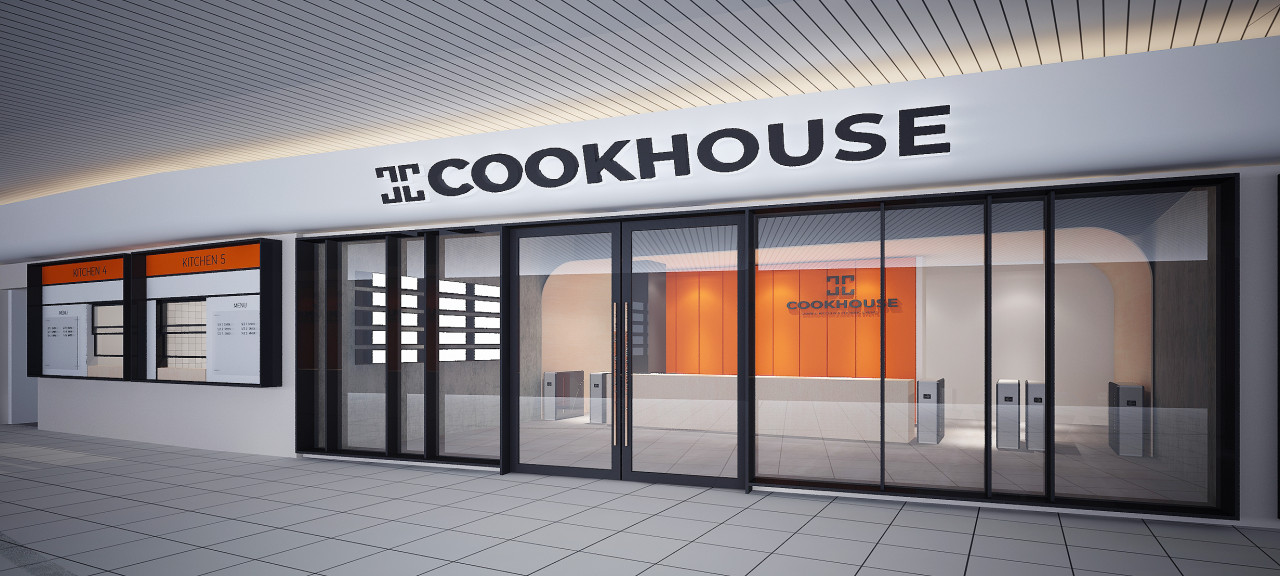IF 2020 has taught us anything so far, it is the agility of businesses changing operations and driving objectives through cloud-based solutions.
Transforming the way we enjoy our dining experience here in Malaysia is Cookhouse, a premier cloud kitchen startup offering shared and co-working kitchens perfect for a community of food connoisseurs.
Founder Huen Su San explains further on the concept: “Operations are optimised to serve delivery markets, where the kitchen may not have a storefront or dining area and is a kitchen serving customers who are in the ‘cloud’ (online).”
Practical alternatives for foodies
According to Su San, the absence of a physical setting to serve dine-in customers is what sets cloud-kitchens apart from traditional restaurants.
"A cloud or virtual kitchen can be set-up differently, depending on the kind of food it serves. It may even be a cloud kitchen operating multiple brands in a single space,” Su San added, noting: “What makes cloud kitchens unique is it has a low startup cost and higher profit margins.”

Cookhouse offers a “good mix of both new and existing restaurants,” where new businesses now have an added avenue to establish their footprint in the food and beverages (F&B) industry — either targeting online delivery food sales or sticking with the traditional brick-and-mortar concept.
Without completely omitting the advantages of having dine-in customer to cater preferences better, the start-up recently announced its latest hybrid expansion of incorporating a food hall theme in its setup with seats available at four new locations within Klang Valley – Seventeen PJ, Glo Damansara TTDI, GMBB Bukit Bintang KL and Growers Market Jalan Ipoh.
The expansion is also carried out to grow Cookhouse’s reach among urban diners and a focused vision to provide practical alternatives for passionate foodpreneurs to thrive in pursuing their dream, overcoming any structural limitations they may face.
“Our initial mission remains the same, which is to build a conducive space for those in the F&B industry to thrive in this challenging business setting, such as by taking the burden of investing in a brick-and-mortar lot off their shoulders.
“The recent launch to four new locations provides bigger and better solutions to our residents — larger spaces and ample seating capacity to accommodate dine-in areas, additional studios and event spaces,” shared Su San.
Lesser risk of structural expansion
Potential F&B businesses interested in collaborating with Cookhouse or looking at ways to remodel their operations ought to know that “we are more than a cloud kitchen and look at building a community with a supporting ecosystem as a whole.”
“The startup cost for new F&B businesses that needs to be taken into consideration includes renovation cost, equipment purchases, licensing and several deposits payables. The lease term is also a risk consideration that needs to be accounted for when starting out,” said Su San.
“We want to create a more efficient way for entrepreneurs to grow their businesses from both the cost and operational perspective.

“Usually for an existing brand, the shift into cloud kitchens also serves as an opportunity to redesign their menu offerings to better suit delivery either by creating a new delivery brand or expanding menu to maximize efficiency of the cloud kitchen,” added Su San.
On whether paying double the rent for two (or multiple) kitchens during the transitional period for partnering restaurant have been a known issue, the founder discloses: “It is quite uncommon for an existing F&B operator to choose to move into a cloud kitchen at a location (within the delivery market radius) where it is already operating. It is unlikely to pay double rent to serve a particular location or market.”
Understanding that the restaurant industry is unpredictably volatile, Su San shares that Cookhouse “will continue listening to the needs of F&B operators and align our direction with changes in the F&B landscape” to sustain performance as opposed to scalability in the long run. – The Vibes, December 3, 2020



_01122020-cloudkitch-mainpic.jpg)












